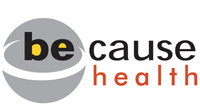
By the WG Determinants of International Health
Covid-19 opens up our view to larger political, economic and social issues previously present in our contemporary world. Therefore to call Covid-19 a pandemic, doesn’t do it justice. Instead, we should refer to it as a ‘syndemic’. To think in terms of a syndemic enables us to think of Covid-19 and its interaction with our health- and social inequalities, and therefore its larger interconnectedness and root causes.
To dig deeper under the surface, we’ll dive into the relationship between Covid-19 and food insecurity. Firstly, doctoral scholar and research fellow Jane Ezirigwe from the department of Research at the Nigerian Institute of Advanced Legal Studies in Lagos, Nigeria, will highlight her research on achieving the realities of food security imperatives in terms of the sustainable development goals on the African continent. Her research will be combined with a practical example from the Belgian context. Iris Verhoeven from social society organisation Riso will present on the mobilisation and advocacy of ensuring access to affordable and healthy food in a sustainable way, reducing food waste and promoting solidarity on a local level.
Interested? Register on ZOOM for the event at the 24th of November at 2 pm CET for a 1 hour learning session on health inequalities and food insecurity in relation to the Covid-19 syndemic in the global South and the global North.
Ms. Jane Ezirigwe is a Research Fellow at the Nigerian Institute of Advanced Legal Studies. She has over 16 years experience in legal practice and research in 8 countries. With 28 publications in reputable peer reviewed journals, she has employed interdisciplinary skills to contribute to science in the areas of Food & Agricultural Law, Human Rights & Gender as well as Law & Development. Jane has contributed to several discussions on the AfCFTA and Food & Agricultural Law at a continental level. She had her legal and professional development training from University of Abuja, Nigerian Law School, Harvard Law School, University of London, ESUT Business School and concluding her doctoral studies at the Faculty of Law of University of Cape Town. She has been on the national committee of the Small and Medium Enterprises Development Agency of Nigeria (SMEDAN) in 2018, the House of Representatives’ Technical Committee on Environmental Law and Policy in 2017, as well as a member of the Advocacy Team of the Minister of Women’s Affairs on Gender Mainstreaming in 2017. She is an International Bar Association Scholar; a Moseneke Grant Scholar on socio-legal research; an Olu Akinkugbe Fellow on Business Law in Africa, a Fellow of Young African Leaders Initiative; and has received several academic and research awards for her contributions to the development of law.
Iris Verhoeven will present on the “StadsAkker” (City Farm) in Tienen, an initiative of social society organisation Riso Belgium, which is creating a meeting place for people where fresh vegetables and herbs can be harvested and ideas about local food production, healthy food and the transition to a sustainable society can be exchanged. The StadsAkker stimulates future thinking about these themes and gives a boost to (citizen) initiatives that want to work towards this. Alongside these initiatieves, the StadsAkker offers a positive answer to the demand for a green and healthy living environment, it ensures the inclusion of vulnerable groups and it stimulates contact and dialogue between residents.
This pandemic is affecting everyone, but not everybody is equally affected. Adressing health inequality has always been essential, now even more than ever. Throughout this learning session, the working group Determinants of International Health invites two guest-speakers, linking the theoretical viewpoint from the Global South with a practical perspective from the Belgian Context. There will be an opportunity to discuss and ask questions.
